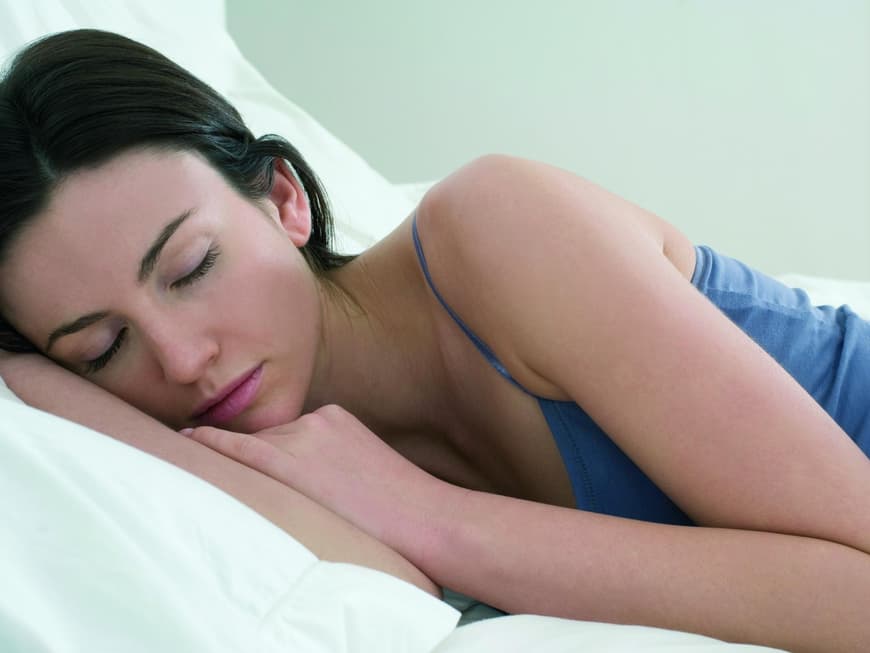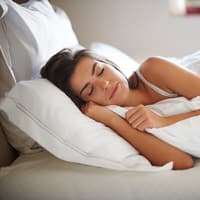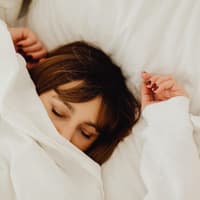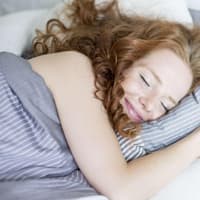
It could be so nice: just close your eyes and drift off to slumberland. But unfortunately, many people find it quite difficult to get there: a good 20 to 30 percent of Germans suffer from sleep disorders. The causes and effects vary greatly. This is why there is no one-size-fits-all solution for problems falling asleep and staying asleep. Much is still unresearched - and there are still many myths surrounding it. Here you will find answers to the most important questions on the subject.
"I keep waking up. Do I have insomnia?"
Doctors speak of a chronic sleep disorder if you are unable to get continuous, restful sleep for three nights or more per week for a month. It is then important to get to the bottom of the causes. A medical consultation can provide first aid for sleep disorders.
"Should you really sleep eight hours?"
No, everyone has individual needs. Some people are fit after just five hours, others need a full twelve.
"Is a hard mattress better for the back?"
Not necessarily, for some it can even cause pain. Point-elastic mattresses are ideal. They adapt precisely to your body weight and provide support where it is needed. The right mattress can be a very simple help for sleep disorders.
"Can I actually catch up on missed sleep?"
Yes, according to studies by the University of Pennsylvania in the USA. The participants initially slept only four hours for seven nights. Some of them were then allowed to rest for ten hours. The result: those who slept in felt as full of energy afterwards as they did before the test.
"Can you prevent tiredness by sleeping in?"
No, that doesn't work. Our internal clock does not allow us to sleep longer than absolutely necessary. The lack of sleep remains.
"Are natural sleep aids addictive?"
No, whether valerian, St. John's wort or passion flower (e.g. Neurexan, pharmacy): Herbal sleep aids have the advantage that they are not addictive. However, they must be taken in sufficient doses and over a longer period of time in order to be an effective aid for sleep disorders.
"Is sleep before midnight really the best?"
This wisdom comes from the time when people got up at dawn and went to bed early. The deep sleep phases, in which the body recovers and the brain relaxes, are particularly important. These occur in the five hours after we fall asleep - regardless of when we go to bed.
"Why does too little sleep make us fat and ill?"
This is partly due to the hormone ghrelin, which is produced in the stomach and creates feelings of hunger. It is increasingly released when there is a lack of sleep. In addition, after a short night's sleep, energy burning is on the back burner. This means that calories are burned more quickly. The body produces less insulin in chronically sleep-deprived people, which increases the risk of becoming diabetic.
"I never remember dreams. Is that bad?"
No, it's actually good because it just means you're sleeping very deeply. People who are sensitive to external stimuli during sleep and wake up more frequently can remember dreams more often. French scientists have discovered this.
"Do smartphones really have an effect on sleep?"
Yes, smartphone activity prevents our body from relaxing. The feeling of being reachable at all times via smartphone also has negative effects. There is also a big debate about whether the so-called blue light emitted by screens prevents us from falling asleep - but this has not yet been conclusively clarified.
"Is a plant in the bedroom good for you?"
That depends: Not all are suitable for this room. This is because many plants consume oxygen at night instead of producing it. As a result, the air becomes stuffy more quickly. Sleep is then less restful and some people wake up with a headache. Bow hemp or aloe vera are good. The green lily is also suitable. It filters pollutants out of the air.
"I find it hard to get up in the morning. What can I do?"
There is no one-size-fits-all solution. Try leaving the curtains open a crack at night. The earlier daylight hits the closed eyelids, the sooner the brain stops producing the sleep hormone melatonin.
"I can only sleep with the light on. Is that bad?"
Darkness is important for our health. Ideally, it should be pitch dark in the bedroom. Here, too, the cause lies with the sleep hormone melatonin. This is only produced when it is not light.
"Is it true that eating late disturbs sleep?"
This varies from person to person. The common recommendation is: if you don't sleep well anyway, you shouldn't eat anything three hours before going to bed. If you are very hungry, a light meal is better. Otherwise your stomach and intestines will be on the go for a long time, making your sleep superficial and restless.
"I just can't fall asleep. What can help?"
There is no perfect method. The important thing is to avoid stress as much as possible and to get in the mood for bedtime with a relaxed program. Reading, a walk or herbal remedies such as lavender (e.g. Lasea, pharmacy) can help.





